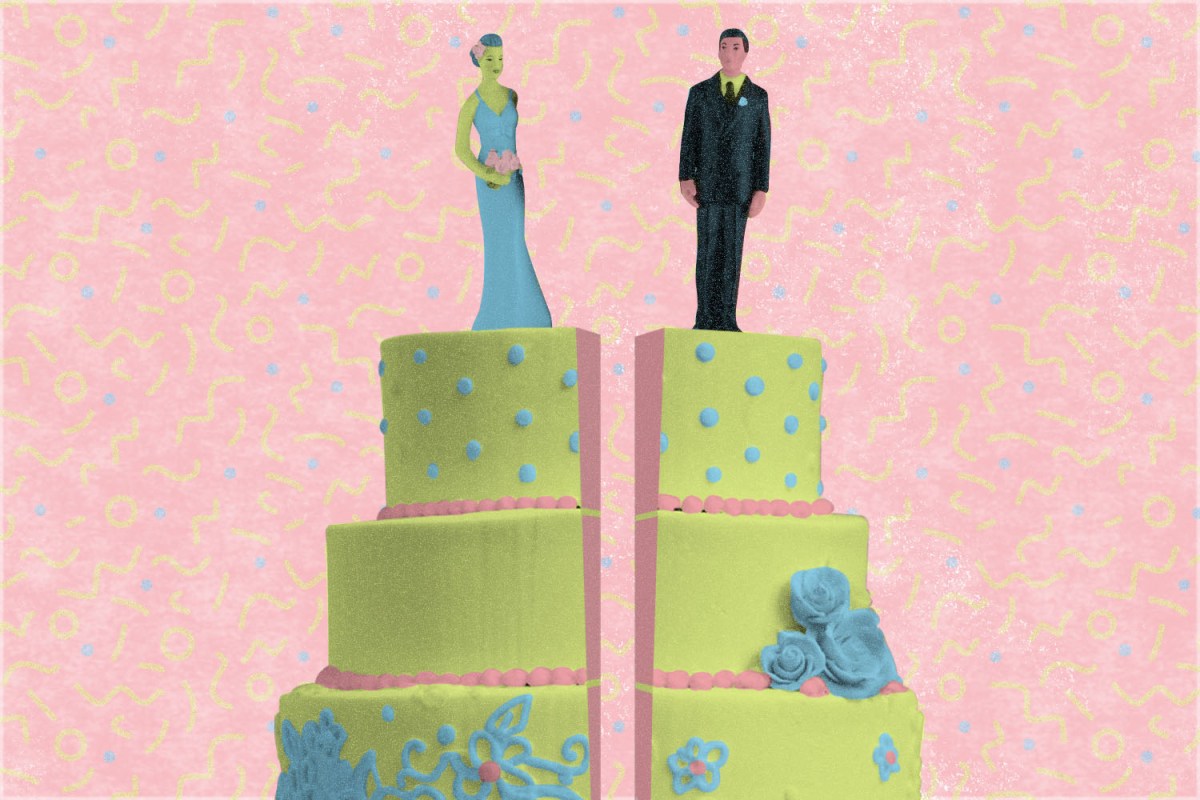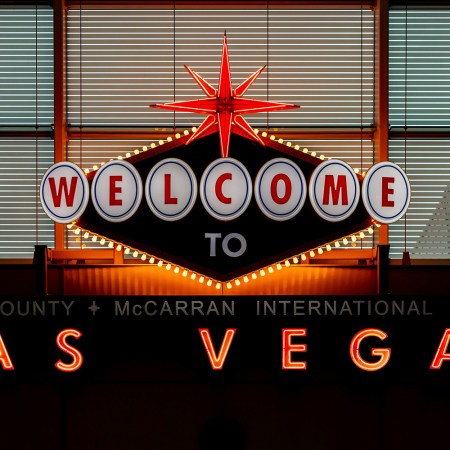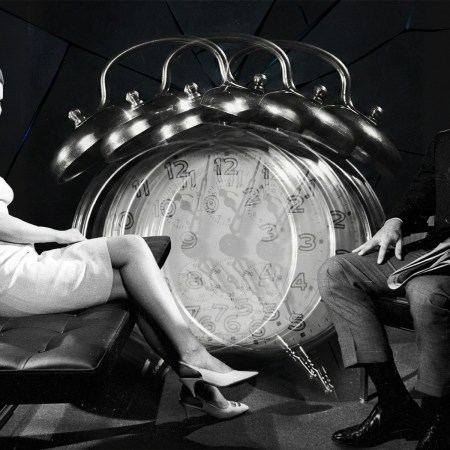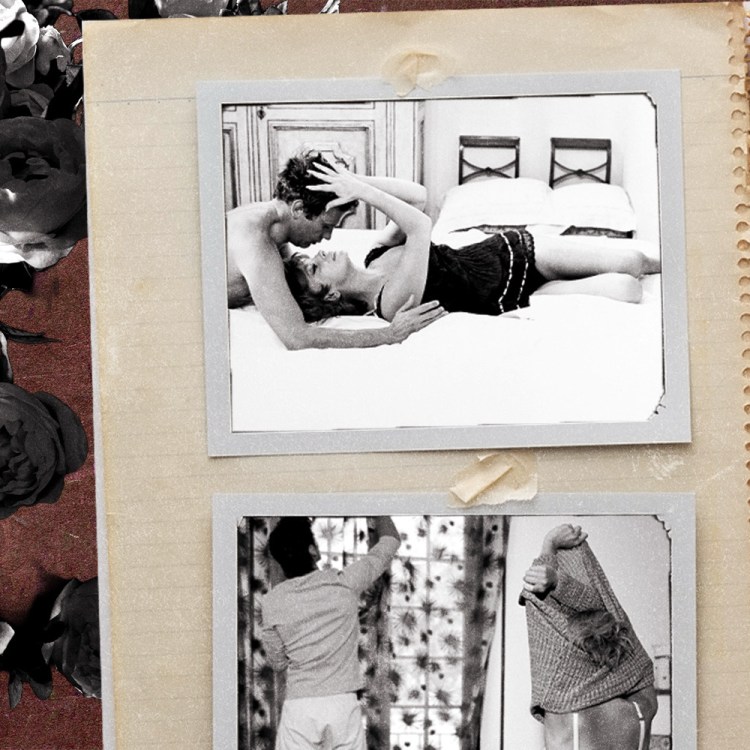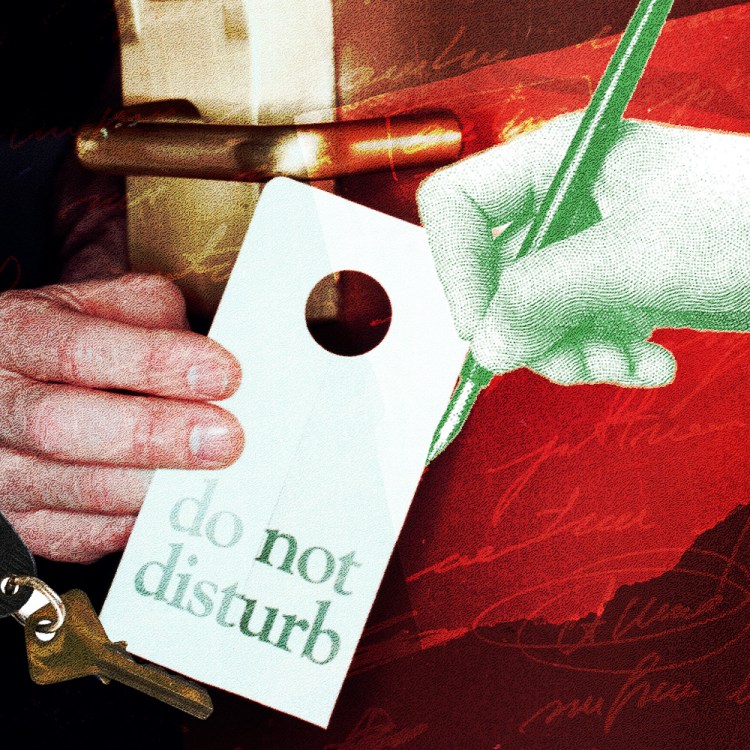
“It seems that all sorts of marriages, begun in the fifties without misgivings, or without misgivings that anybody could know about, blew up in the seventies,” Canadian short story writer Alice Munro observed in the 1990 collection Friend of My Youth.
Munro, whose own ’50s marriage blew up in the ’70s, had written about divorce before, with many a semi-autobiographical divorcée popping up throughout her prolific catalogue dating back to some of her earliest work in the late ’60s.
By 1990, however, Munro had the hindsight to highlight the marriages and divorces of her youth as more than isolated storylines, painting them instead as a collective generational trend — the first time the once relatively rare and extremely taboo practice approached anything resembling a generational touchpoint.
It turns out Munro’s observation wasn’t imagined. The divorce rate in America steadily climbed throughout the 1960s and ’70s, peaking in 1979 at a rate of 5.3 divorces per 1,000 Americans, culminating in a grand total of 1,193,062 divorces that year. Rates have been on the decline since, with the CDC’s most recent data putting the divorce rate at just 2.9 per 1,000 Americans in 2017.
Much has been made in recent years of millennials’ role in the great divorce decline, with tongue-in-cheek accusations accusing millennials of “killing divorce” fueled largely by University of Maryland sociology professor Philip Cohen’s popular analysis in the report The Coming Divorce Decline. Cohen’s research cited an 18-percent overall decline in divorce from 2008 to 2016, and despite a common knee-jerk argument attributing the decline to the simple fact that fewer millennials are married and therefore fewer have had a chance to get divorced, Cohen maintains that the trend is poised to continue, even as more millennials approach “divorce age.”
“If these young people make it into their 40s without divorcing, their odds of staying together only increase,” Cohen told HuffPost back in 2018. “It looks like the next generations to come up behind the Boomers aren’t going to adopt their divorce-prone ways.”
However, while much of the conversation surrounding millennial divorce has centered around a lack thereof, it isn’t unheard of. Millennials do get divorced, and like the ’70s divorces that ended the marriages of Alice Munro’s generation, millennial divorce has taken on its own generationally specific characterizations and flavor, perhaps rendered all the more pronounced thanks to its relative rarity.
Unlike the pre-boomer divorces Munro recalls as beleaguered by “a lot of spectacular — and, it seems now, unnecessary, extravagant — complications,” it seems millennial divorce is generally a much simpler affair.
“It’s much easier nowadays,” says New York divorce attorney Bryan M. Goldstein, who credits various technological and cultural advances with easing both the logistical and emotional effects of divorce and its aftermath.
For one thing, divorcing millennials come in prepared, thanks in large part to the role technology plays in organizing the often burdensome financial and legal details of their lives.
“Older people typically are bringing me boxes of financial documents and I have to go through them. It takes forever,” Goldstein tells InsideHook. “These millennials have it done. If I ask them for documents, I get them that day because all they need to do is go on their phone and download their statements and send it on over.”
Technology has streamlined the millennial divorce, says Goldstein, with entire digital platforms like dtour.life reinventing separation for the 21st century. “It’s made divorce so much more efficient.”
The financial aspect of a divorce tends to be less complicated from the get-go as it is, thanks to the fact that, increasingly, both members of a millennial marriage tend to be financially independent. As Liz Higgins, a therapist at Millennial Life Counseling in Dallas, tells InsideHook, this financial freedom has led to a culture in which marriage is less about “logistical needs — ‘I need to marry a person who can support me through life,’” and more about emotional ones: “‘I WANT to marry a person who can love me through life.’”
But while financial independence may be enabling millennials to enter marriage with emotional rather than logistical goals in mind, they’re also going into those marriages with the paperwork to protect that financial independence. Goldstein says he’s seen a “huge increase” in prenups throughout his career, and they don’t necessarily carry the same underlying implications they once did.
“People are going into marriage with more assets, because they have things from their family,” he explains. “They’re going into marriage later, which means some have built businesses or acquired property, or have a substantial salary because they’ve been working for 10 years rather than getting married at 22.”
All this, says Goldstein, has caused a huge shift in millennial attitudes toward prenups. “The thought of a prenup 30 years ago is very different than the thought of a prenup now,” he says. “People are going into the marriage with a lot more than they used to, and typically both spouses have something going in, whether it’s just their income or beyond that.”
Meanwhile, technology isn’t just aiding the divorce process itself. Goldstein credits the rise of dating apps with helping to ease the millennial transition into post-divorce life. “People aren’t saying ‘I’m going to be alone for the rest of my life’ as much as they used to, because anybody can meet anybody,” says Goldstein. “It’s much easier nowadays.”
Also helping millennials move forward may be an overall reduction in stigma surrounding divorce. While divorce may be less common among millennials’ peers than it was among their parents’, it seems that a pre-’60s-level regression in divorce rates hasn’t led to a similar regression in surrounding attitudes.
Unlike divorced members of older generations who are often left to grapple with “a sense of guilt or shame,” says Goldstein, millennials no longer tend to equate a failed marriage with a failed life.
Christine Gallagher, the author of The Divorce Party Handbook who first pioneered the divorce party trend back in 2003, says that while once-eyebrow-raising celebrations marking the end of a marriage have become “much more mainstream” over the years, she still tends to work most often with older clients.
Compared to older adults on whom “the impact of the divorce is stronger,” says Gallagher, “millennials are much more likely to either just move on and skip the divorce party….or to arrange something fun on their own.”
That’s not to say that millennials approach divorce with pure stoicism, however. “I think overall the emotion is the same,” says Goldstein. “People are scared. People are sad. Whatever your emotions are is totally valid.” The difference, however, is that for millennials, divorce no longer feels like a final ending as much as it does a new beginning.
“It’s not as traditional as it used to be, where you’re married and that was it. Which is a great thing,” says Goldstein. “That’s not everybody’s dream, and people are dreaming differently than they used to.”
The Charge will help you move better, think clearer and stay in the game longer. Subscribe to our wellness newsletter today.
